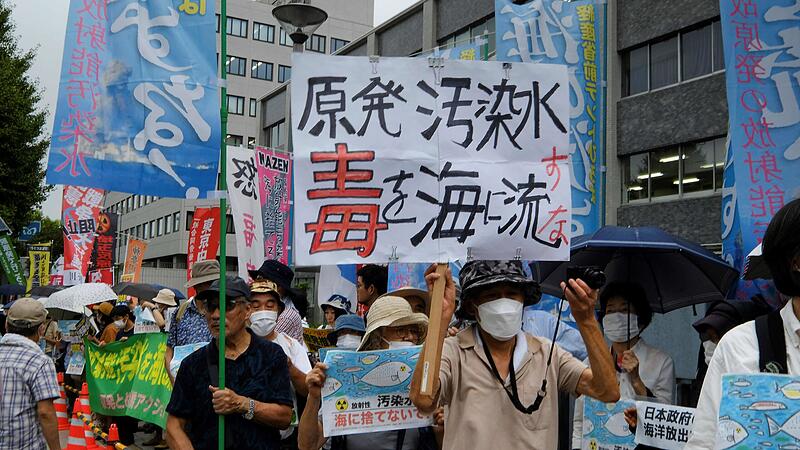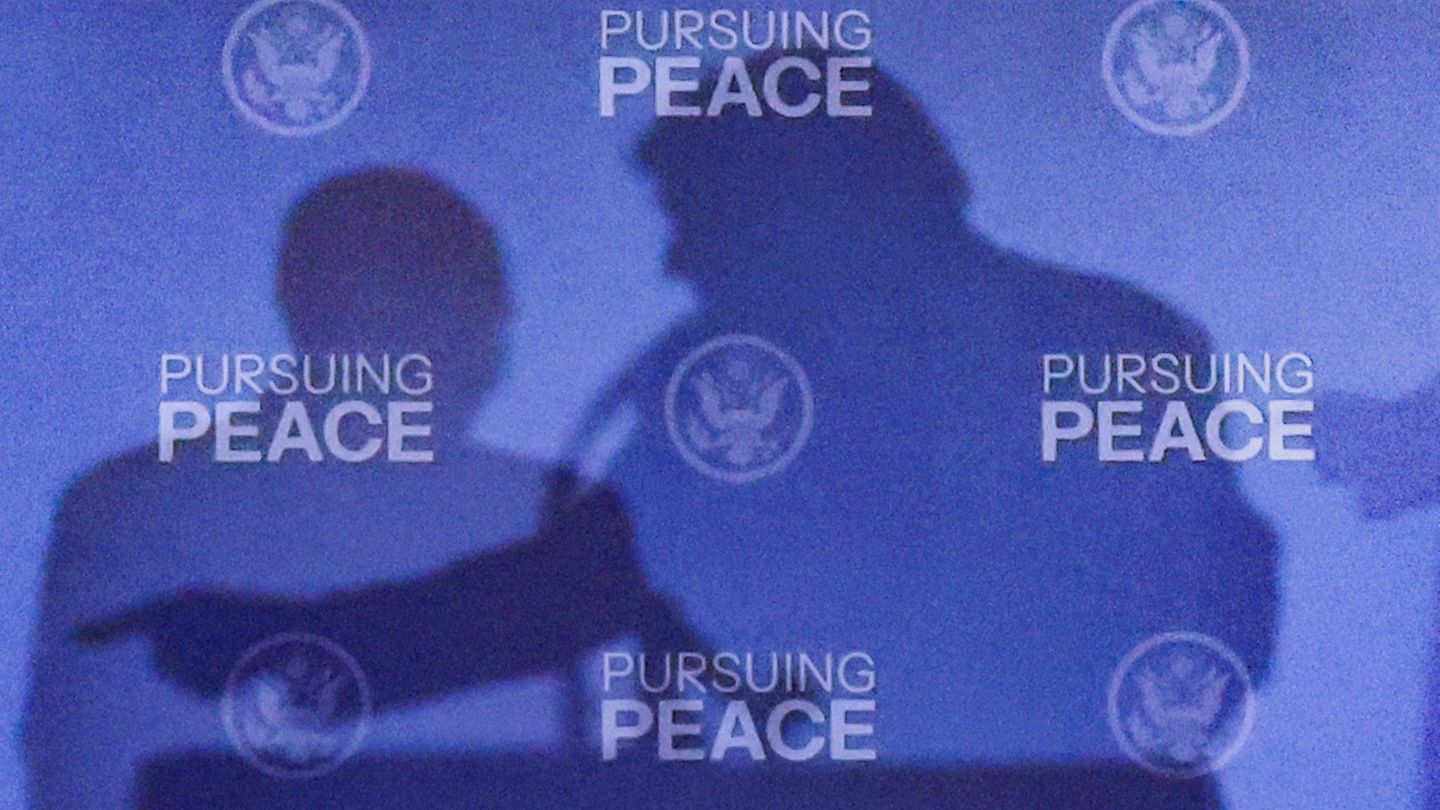Image: (APA/AFP/KAZUHIRO NOGI)
Dumping is scheduled to begin on Thursday, weather permitting. That was decided by Prime Minister Fumio Kishida’s cabinet on Tuesday. Kishida’s government argues that the site of the nuclear ruins is running out of space to store cooling water, thereby hampering decommissioning work.
The conservative head of government said that draining the water into the Pacific Ocean is something that “cannot be postponed”. Japan’s fisheries associations expressed their strong opposition to the last day. Environmentalists and neighbors like China also criticized it.
In March 2011, a severe earthquake and massive tsunami caused a core meltdown at the Fukushima Daiichi nuclear power plant. The reactors must continue to be cooled with water stored in more than 1,000 huge tanks. But now, according to the operating company Tepco, there is no space for it. In addition, long-term storage on the site threatens to impede the decommissioning work on the nuclear ruins. There is also a risk of leaks, it said.
1.3 million tons of water
Therefore, the more than 1.3 million tons of water are to be channeled into the sea via a one-kilometer-long tunnel specially built for this purpose in the Pacific. This is expected to take around 30 years. However, before being dumped in the Pacific, the contaminated cooling water is first treated. However, the filter system cannot filter out the radioactive isotope tritium. Tepco therefore wants to dilute the water to such an extent that the tritium concentration drops to 1,500 becquerels per liter, which corresponds to less than a fortieth of the national safety standard.
Japan’s nuclear regulatory agency recently gave the green light. The International Atomic Energy Agency (IAEA) had previously approved the dumping plans. Japan meets international safety standards. The effects on people and the environment are “negligible”, the IAEA found. Experts point out that nuclear power plants all over the world have routinely discharged contaminated cooling water into the sea for decades. However, Japan’s fisheries associations fear that the reputation of their products will be further tarnished. You’ve been trying to recover in business since the super meltdown.
Environmentalists outraged
“We are deeply disappointed and outraged by the Japanese government’s announcement that it would dump radioactive water into the ocean,” said Hisayo Takada of environmental group Greenpeace Japan. The government has ignored the concerns of fishermen, citizens and the international community, particularly in the Pacific region and neighboring countries. “Rather than acknowledging the shortcomings of the current decommissioning plan, the ongoing nuclear crisis and the massive need for public funds, the Japanese government intends to restart more nuclear reactors,” Greenpeace said in a statement.
According to the Japanese news agency Kyodo Tokyo, China and Russia, which are also opposed to dumping at sea, recently jointly pushed for consideration of a disposal strategy through evaporation instead. Evaporation of the water and its release into the atmosphere would have less impact on neighboring countries than discharge into the sea, Kyodo quoted from a document submitted to Tokyo.
Source: Nachrichten




